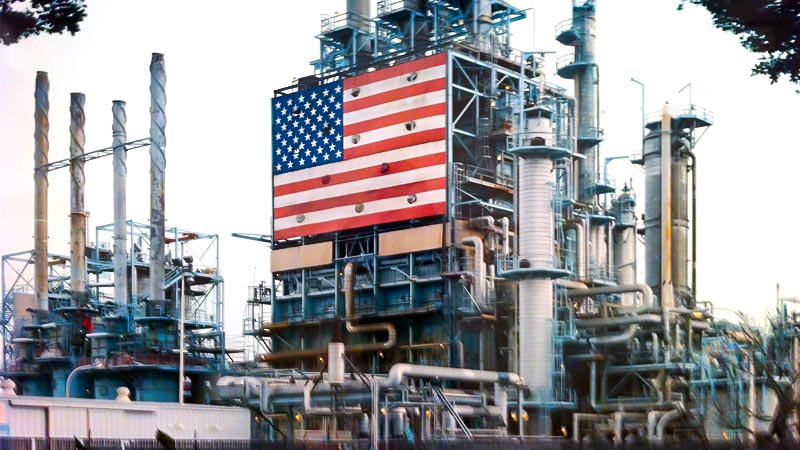Alwaght- Having in hand the technology for commercial production of shale oil and also enjoying huge reserves in its territory, the US not only has improved the prospects of a positive economic growth but also with entering into the global oil markets it could change the world's energy equations. Such an event could leave significant security, political and economic impacts, as, besides, it could influence Washington’s relations with the global major players.
Meanwhile, the US-Russia ties, which suffer from considerable and unsettled tensions, could even get into a new stage as Washington steps in the oil producers' club.
The US Energy Information Administration has estimated that the US shale oil production could touch 2.8 million barrels per day up to 2020, adding that after the record rise, the production would inch down and at the end of the road would stop at 2 million barrels per day. The Administration also noted that the US has managed to outstrip Russia as world's second-largest oil and gas producer. The US total oil production hit 10 million barrels per day in 2015, almost matching with a Russian 10.5 million barrels daily oil production forecast for the US.
According to the figures of the International Energy Agency, the global demand for crude oil would grow 8 percent in 2018 to hit seven million barrels per day. It is expected that by taking advantage of the shale oil technology, the US production supersedes Saudi Arabia and Russia which are currently world’s largest oil producers.
Meanwhile, what added to the importance of the US oil production is a bill in Congress which has left ban on US oil sales to the foreign countries. Lifting the ban on oil sales in the present time could have its own internal and external consequences. That is why it drew a variety of supporters and opponents.
The supporters of the bill, mostly the Republicans and big US oil companies, believe that the abrogation of the ban on US oil exports to the foreign countries could have a couple of results, including:
- The US could be present in the oil markets as an exporter not only a purchaser of crude.
- The US could use its energy sources sales for political aims across the world.
- Oil sales of Washington could enable it to rival other oil producers and so manipulate the energy princes.
- Opening up the US oil market to the world puts Washington at disposal of its allies as a more stable trade partner.
- The US presence in oil markets helps it to scale down the power of the oil producers like Russia, Venezuela, and the unstable Middle East countries which use oil as an instrument to put strains on Washington and its allies.
- The Congress bill also helps the US oil companies to recover after they suffered financial damages coming from sagging oil prices.
- lifting the ban on oil exports could help the US economy add new jobs. Presently, the 50 percent drop in prices and gradual shrink in production of some countries has caused fast activity decline in the US oil industry and thus a rise in unemployment.
However, concerning the US shale oil reserves and its influences on the international oil markets, there should be no exaggeration, because in its best way, the produced shale oil could only meet the US energy needs at home. This comes while the world has other large oil consumers like China, Japan, India and the European countries.
A look at the US energy strategies makes it clear that Washington's overarching goal is cutting off reliance to oil imports, therefore, even if the shale oil production is not economical for the country, the government seeks saving the industry through paying subsidies and also considering tax exemptions. But the costly saving of the oil shale production could only address the US home consumption and so it fails to meet global energy needs, or have dramatic influences on the global oil markets.
The Americans know well that changes in alternative energies could cause even more changes to the oil prices. Therefore, the US new policies mostly endorse development of natural gas industry as well as coal reserves for power plant use. Washington is also leaning towards further petrochemicals production from natural gas.
All in all, it appears that just against the primitive estimations, the low oil prices not only didn't bring forth favorable political and economic advantages for Washington but also in the long run could damage the US economy and the institutions and economies that rely on the US dollar. In fact, the global recession, which is a major cause of lapse in global energy demands, in long terms could push the US to face an array of challenges.



























